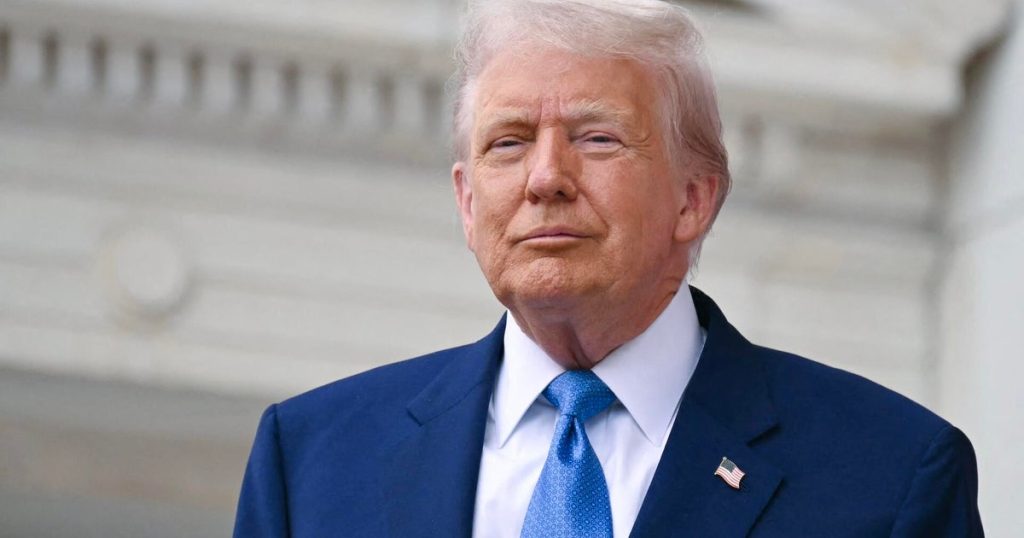The U.S. Supreme Court has authorized the Trump administration to terminate a humanitarian parole program affecting over 500,000 individuals from Cuba, Nicaragua, Haiti, and Venezuela. This ruling allows the administration to proceed with its efforts to revoke temporary legal protections while the legal dispute continues in court. The Justice Department previously sought emergency relief following a lower court’s decision that aimed to halt the revocation of the program, which had granted temporary residency to migrants in the U.S.
| Article Subheadings |
|---|
| 1) Overview of the Supreme Court Decision |
| 2) Implications of the Ruling on Migrants |
| 3) Background on the CHNV Program |
| 4) Legal Challenges Against the Administration |
| 5) Future of Immigration Policies under Trump Administration |
Overview of the Supreme Court Decision
On Friday, the Supreme Court affirmed its decision to allow the Trump administration to terminate the CHNV (Cuban, Haitian, Nicaraguan, and Venezuelan) humanitarian parole program. This decision emerged from a request made by the Justice Department for emergency relief following a district court ruling that had temporarily blocked Secretary of Homeland Security Kristi Noem from reversing the grants of humanitarian parole for thousands of migrants. The Justices’ ruling signifies a pivotal moment in ongoing legal battles concerning immigration policies.
Implications of the Ruling on Migrants
The ruling allows the Department of Homeland Security (DHS) to proceed with deportation efforts against individuals who had previously been granted temporary protection under the CHNV program, putting approximately 532,000 migrants at risk of losing their legal status. This transformative demographic, mainly consisting of individuals fleeing unstable political and economic conditions in their home nations, now faces an uncertain and potentially perilous future in the United States. The dissenting opinion from Justices Sonia Sotomayor and Ketanji Brown Jackson underscored concerns that this decision may lead to avoidable turmoil in their lives while the courts deliberate on the legal merits of the case.
Background on the CHNV Program
The CHNV program was designed during the Biden administration to provide temporary legal status to individuals from Cuba, Nicaragua, Haiti, and Venezuela, who were seeking refuge from harsh conditions in their home countries. Established toward the end of 2022 and early 2023, the program required migrants to secure a sponsor in the United States, enabling them to live and work legally for two years. The impetus behind creating the CHNV program was largely due to the significant increase in migrant arrivals at the U.S.-Mexico border, which the administration aimed to address through legal avenues for immigration.
Legal Challenges Against the Administration
A federal district court in Massachusetts had previously halted the revocation efforts by Secretary Noem, affirming that federal law mandates a case-by-case assessment rather than a categorical termination of humanitarian parole. This ruling led to an appeal by the Trump administration to the U.S. Court of Appeals for the 1st Circuit, which upheld the district court’s decision. The Trump administration then sought intervention from the Supreme Court, insisting that the lower court’s ruling obstructed vital immigration policy decisions and altered the legal landscape created by the previous administration.
Future of Immigration Policies under Trump Administration
The latest ruling is part of a broader strategy by the Trump administration that emphasizes stricter immigration controls. This strategy is seen as a critical component of the administration’s 2024 campaign platform. The administration’s keen focus on immigration has generated a landscape of tension between the executive branch and the federal judiciary, raising questions about the long-term implications of such decisions on U.S. immigration policy.
| No. | Key Points |
|---|---|
| 1 | The Supreme Court authorized the Trump administration to terminate the CHNV humanitarian parole program. |
| 2 | Approximately 532,000 migrants from Cuba, Nicaragua, Haiti, and Venezuela could lose legal status. |
| 3 | The CHNV program allowed temporary legal status for individuals fleeing difficult conditions in their home countries. |
| 4 | Legal challenges have arisen against the termination of the CHNV program, highlighting case-by-case requirements. |
| 5 | The ruling feeds into a larger strategy of increased immigration control by the Trump administration as it heads towards the 2024 campaign. |
Summary
The Supreme Court’s ruling to permit the termination of the CHNV program poses significant consequences for many migrants currently residing in the United States under temporary protections. As the legal situation continues to evolve, the implications of this ruling could reshape the landscape of U.S. immigration policy, particularly regarding humanitarian considerations for those fleeing unstable conditions. The actions of the Trump administration indicate a commitment to stricter immigration controls, which may resonate throughout upcoming political campaigns.
Frequently Asked Questions
Question: What is the CHNV program?
The CHNV program is a humanitarian parole initiative that allowed individuals from Cuba, Haiti, Nicaragua, and Venezuela to live and work legally in the U.S. for a temporary period while awaiting further legal resolutions.
Question: Why did the Trump administration seek to terminate the CHNV program?
The Trump administration aimed to revoke the CHNV program as part of a broader strategy to enforce stricter immigration controls and rollback policies established during the Biden administration, asserting that those policies encouraged illegal immigration.
Question: What was the legal basis for the federal district court’s ruling against termination of the CHNV program?
The federal district court ruled that federal law requires that changes to humanitarian parole must occur on a case-by-case basis, thereby preventing the blanket termination sought by the Trump administration.
